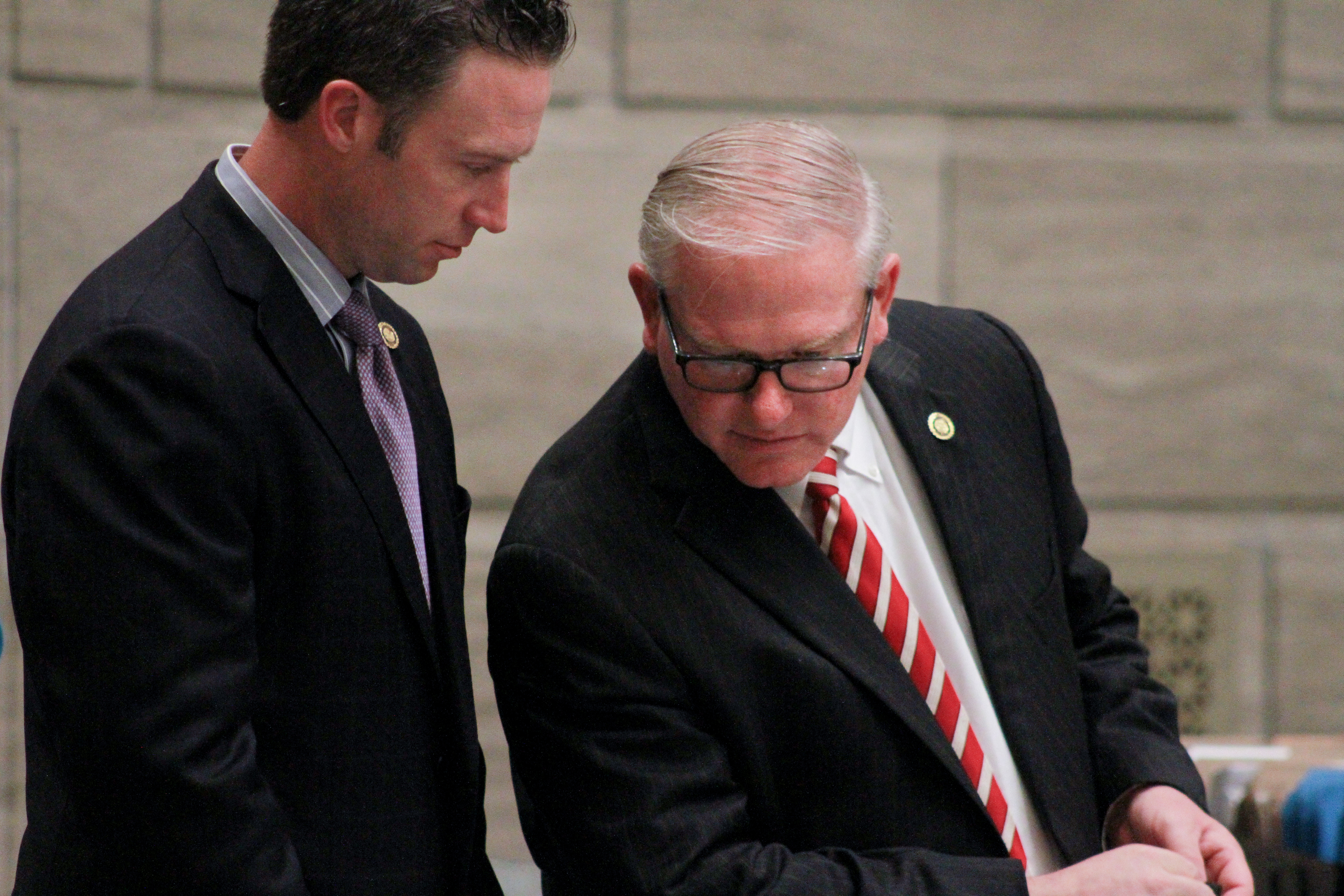JEFFERSON CITY, Mo. — Following months of lagging revenue, state collections are springing up as the Senate works through Missouri’s operating budget for the upcoming year.
On Wednesday, the upper chamber debated and passed Missouri’s $30 billion budget for FY 2020. The budget being constructed is based on a 2 percent revenue growth from FY 2019, which is based on 1.7 percent growth from FY 2018.
In recent months there has been speculation if the state would meet FY19 growth projections and how that would impact the upcoming budget. In fact, the FY20 budget leaves some money unspent, which Senate Appropriations Chair Dan Hegeman called a “cushion.”
Budget hawks have been closely watching collections for months as revenue continuously failed to meet growth projections. At the end of March, net general revenue collections for 2019 fiscal year-to-date were down 4.3 percent compared to March 2018, from $6.72 billion last year to $6.43 billion this year — an improvement from the 7 percent year-to-date decrease for January.
Experts projected that following the April 2019 tax deadline and into the beginning of May revenue collections would start to catch up. And the numbers are certainly ticking up, with the most recent figures showing an increase from the previous year.
As of Tuesday, revenue collection had increased by 0.47 percent ($34.7 million) year-to-date from the previous year.
“Revenues are starting to come through,” said Hegeman. “We are leaving money on the bottom line…there is some cushion [in the FY20 budget].”
In fact, the Senate version of the budget brought up on the floor on Wednesday roughly left $130 million unspent.
For education, the Senate voted to fully fund the foundation formula, increase school transportation by $10 million, increase core funding for public colleges and universities, and allocate $10 million to the Fast-Track scholarship program.
In contrast to the House’s proposal to spend $100 million of general revenue on roads and bridges, the Senate allocated nearly $50 million as part of a bonding compromise. The upper chamber also appropriated $35 million for a county-state cost-sharing program for transportation infrastructure improvements.
Additionally, $8 million in funding for flood recovery was approved along with $13 million of the state’s fledgling medical marijuana program and $5 million for broadband grants. The Senate walked back the House position, opting to keep the Capitol Police under the Department of Public Safety.
Maintained in the budget from Gov. Mike Parson’s original recommendation are raises for all state employees and additional pay increases for corrections officers.
A few failed amendments ignited passionate debate on the floor.
Sen. Scott Sifton sought to ban the shackling of incarnated offenders who are in the later stages of pregnancy by restricting reimbursements to counties who do not have a policy prohibiting the practice.
“It is inhumane to have a woman shackled at her knees and her hands at the third trimester,” said Sen. Jamilah Nasheed, who supported the amendment.
“What I am saying is…they don’t have to be shackled but if they do, I want the law enforcement to be able to keep this woman, the baby, and themselves safe,” said Sen. Jeanie Riddle.
Several opponents to Sifton’s amendment noted they weren’t necessary against the idea, but it should be presented as a bill rather than trying to legislate through the budget.
Sen. Jason Holsman unsuccessfully attempted to add an amendment to stop penalizing health clinics affiliated with others that provide abortion services.
He pointed out only one of the 12 Planned Parenthood clinics in Missouri offers abortion services, but all of them fall under the funding ban in the budget. According to Holsman, his amendment would allow some funding to go to clinics that solely focused on women’s health, instead of penalizing them for services they don’t provide.
“To fund one Planned Parenthood facility is to fund them all,” one senator rebutted.
GOP senators also floated the idea of restricting funding to public transportation systems that do not allow passengers with concealed carry permits to bring his or her firearm on board. No amendment was offered.
“They are putting people in a situation where they are extremely vulnerable,” said Sen. Eric Burlison.
“Criminals know that the law-abiding citizens have been disarmed,” responded Sen. Bob Onder.
Throughout roughly six hours, the Senate passed all 13 bills that make up the FY20 budget. All amendments offered on the floor were struck down. Lawmakers went with the appropriation committee recommendations in 11 of the bills, with Hegeman introducing Senate Substitutes for HB 7 and HB 10.

Alisha Shurr was a reporter for The Missouri Times and The Missouri Times Magazine. She joined The Missouri Times in January 2018 after working as a copy editor for her hometown newspaper in Southern Oregon. Alisha is a graduate of Kansas State University.







